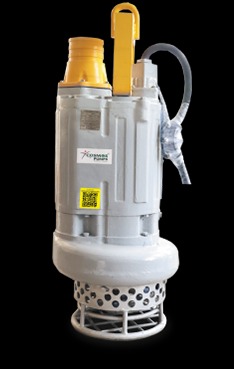Bahrain’s arid, dry environment may lead one to believe that groundwater management is not an issue except with construction engineers. Beneath the arid surface lies a challenge that can make or break a project: managing subsurface water in a harsh environment. The choice of what pump to apply is paramount, and it’s not just about specs or dewatering pump price.
From high salinity to unstable sands, Bahrain’s climate and soil require special attention. And with the right dewatering pump, construction firms can make informed, site-specific decisions that save effort, money, and time. This is how Bahrain’s environment affects pump selection and why it is a good idea to be selective.
Bahrain’s Climate: Hot, Arid, and Unpredictable
Positioned in the centre of the Gulf, Bahrain suffers from intense heat, low rainfall, and high evaporation. Surface water is limited, yet groundwater is prone to accumulate in low-lying construction sites, particularly during infrequent storms or coastal high tides.
Issues are:
- Flash flood in low-lying urban areas with abrupt onset
- Infiltration of saltwater along coastal areas
- Hard, compacted soil with embedded sandy strata, resulting in uneven drainage
These conditions require strong, resistant-to-corrosion, and very effective dewatering systems, particularly on large infrastructure or property developments.
Soil Conditions: A Hidden Variable in Pump Performance
Bahrain’s soil is highly variable throughout the nation. Parts of the country contain heavy calcareous soils, while others are made up of fine shifting sands. In both instances, groundwater can build rapidly, putting excavation stability at risk.
Your choice of pump relies significantly on:
- Soil permeability: Sandy ground provides a faster water flow, necessitating larger-capacity pumps.
- Sediment load: Fine particles can clog normal pumps, accelerating wear and maintenance.
- Corrosive substances: Where there are coastal or reclaimed soils, pumps will have to withstand high salinity.
Selecting a pump that can handle such soil conditions is more efficient than simply selecting based solely on dewatering pump price.
Why Generic Pumps Won’t Work
A pump running in a different location may not work or fail in Bahrain’s environment. For example:
- Conventional submersible pumps corrode very rapidly in brackish water.
- Diesel pumps may overheat during high summer temperatures.
- Unsealed pumps are prone to being bogged down by fine sand particles.
That’s why it is reasonable to talk with a reputable dewatering pump supplier in Bahrain who knows the local ground conditions and offers models specifically designed for the country.
The Real Cost of the Incorrect Pump
While price is always on the list, only focusing on the cost of the dewatering pump will bring about a disaster. A low-cost unit will cost you:
- Recurring failure due to sand or salt corrosion
- Poor drainage of water, causing project delays
- More maintenance and fuel consumption
- Reduced pump life, causing premature replacements
Conclusion
Bahrain’s construction water management is not simple. To get it right, more than specs are needed; it requires knowledge of how the weather and ground interact with your equipment. Before you select a dewatering pump solely on price, consult with a reputable dewatering pump supplier in Bahrain like Cosmos Pumps. With their expert guidance, you’ll spend your money on a pump that not only represents value for money but is built to handle the uncompromising and severe weather conditions of Bahrain. That’s smart construction and even smarter pumping.



